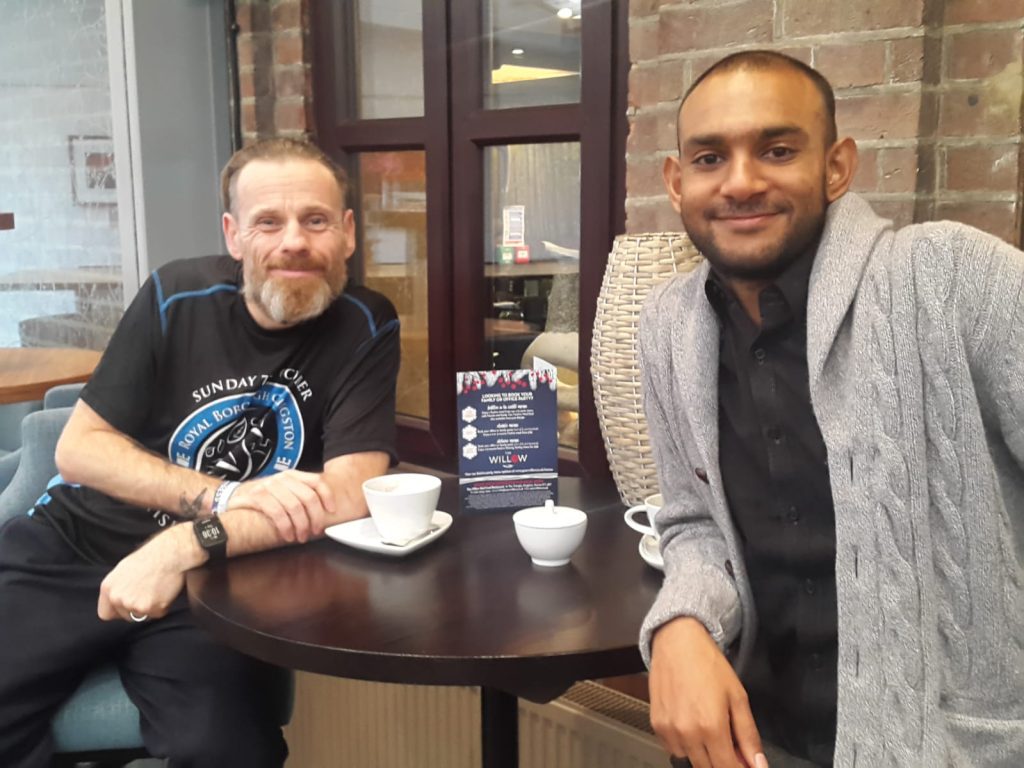In December 2017 I joined the Best Beginnings team to support with coordination of our 2018 London Marathon runners, in partnership with the Heads Together campaign for mental health awareness. Little did I know then it would lead to making an inspirational friendship that has helped me face my own mental health issues.
Although I had little experience with marathon events, I’ve spent most of my working life in community development, so getting to know our running team personally was part of the role I was really looking forward to. That, and I love to meet new people! To this end, I organised a number of meetups with the runners to learn more about them and find out how I could support their journey to race day.
I met Paul for morning coffee, a vice we both share. The conversation started in the usual way; thanking him for joining #TeamBestBeginnings and #TeamHeadsTogether and discussing his motivation for running the marathon. He told me he started running only a few years ago as a way to manage his mental health. At first I thought he meant this in a generic sense but then he clarified; he runs to manage of his own struggle with depression following his mother’s passing.

My heart pounded at his words. Although I had lost my mother almost 8 years earlier, like Paul, I hadn’t seen it coming and I hadn’t dealt with it well at all. Paul’s story is his own so I’ll leave it for him to tell, but his descent into depression was eerily familiar; denial, guilt and ‘proof’ that the he was a failure as a son.
I say ‘proof’ because it’s the best word that comes to mind when I think about my own depression. For me, it’s like a scientist constantly collecting evidence to prove my underlying belief that I’m a waste of space. Every social faux pas, every work related mistake and just about anything I’d prefer to forget are all collected and crammed into an invisible box balancing on my head. This box waits for the chance for me to doubt myself once more and then will empty all over me and overwhelm me with the undeniable evidence for everyone to see, leaving me to feel only shame.
But in that moment in the café with Paul, as that feeling of shame seeped over me, I could feel something had changed. Instead of burying it deep in an attempt to hide my true self like usual; I spoke and I cried. So in the middle of a congested café, full of rush hour workers collecting coffee to fuel their commutes, I sat sobbing opposite a grown man I barely knew and wasn’t embarrassed at all.
Paul was the first person I spoke to about how I felt outside of close friends and family. In this moment of sharing, it became clear that as I had grown older, the invisible box had also grown bigger and opened more often. It was time to address this. In speaking to someone who was open to talking about a similar experience, I felt empowered. I went on to speak with my brother, who helped me refer myself for local therapy services.
Paul’s openness hadn’t just given me the courage to talk about depression, it had also given me hope. Since seeking help those years ago, Paul has got to a place where he self manages his mental health and running has been a huge part of that. Now we meet up pretty regularly for a coffee and a chat. At the time of writing, I’m three weeks into a Cognitive Behavioural Therapy (CBT) course, provided by the NHS, and though it’s too early to say what works, just knowing I’m doing something makes me feel a little more in control of my life. Paul even reckons he’ll get me running a marathon soon – watch this space.
